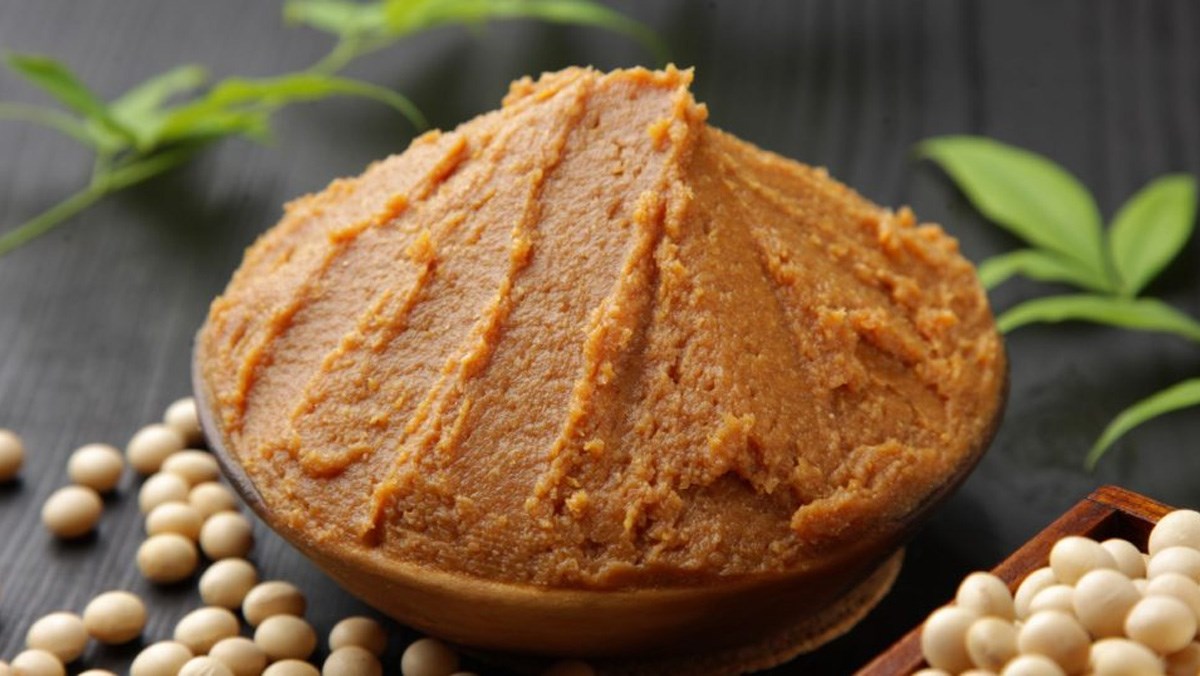Are you looking for natural ways to improve your digestive health? Fermented foods could be the answer! Fermentation is a process that involves the breakdown of carbohydrates and other nutrients in foods by beneficial bacteria and yeasts. These foods are not only tasty, but they can also provide a host of health benefits, especially for the digestive system. In this post, we'll be discussing six of the best fermented foods for digestive health. We'll explore their unique benefits and how they can help to improve your gut health. Whether you're a foodie or just looking to boost your overall health, this post is for you. So sit back, relax, and let's dive into the world of fermented foods!
1, Yogurt.
Yogurt is a fermented dairy product that has been enjoyed for centuries around the world. It's made from milk that has been fermented with specific strains of bacteria, which gives it its distinctive tangy taste and thick, creamy texture.
One of the key benefits of yogurt is its high probiotic content. Probiotics are live bacteria and yeasts that live in your gut and are essential for maintaining a healthy digestive system. When you consume yogurt, these beneficial bacteria can help to improve the balance of bacteria in your gut, leading to better digestion and a stronger immune system.
One of the most prominent probiotics found in yogurt is Lactobacillus acidophilus. This strain of bacteria is known for its ability to alleviate digestive issues like bloating, constipation, and diarrhea. It can also help to reduce inflammation in the gut and improve overall gut health.
In addition to its probiotic content, yogurt is also rich in protein, calcium, and other essential nutrients. One cup of plain, low-fat yogurt contains approximately 12 grams of protein and 448 milligrams of calcium, making it an excellent choice for those looking to boost their nutrient intake.
When choosing yogurt, it's important to opt for varieties that are low in added sugars and artificial ingredients. Plain, unsweetened yogurt is the best option as it contains no added sugars and is free from artificial flavors and sweeteners. You can also add your own flavorings like fresh fruit, honey, or cinnamon for a healthy and delicious snack.
In summary, yogurt is a delicious and nutritious food that is packed with probiotics and essential nutrients. Adding it to your daily diet can help to improve your digestive health and overall well-being. So why not enjoy a cup of yogurt as a snack or incorporate it into your meals today?
2, Kimchi.
Kimchi is a traditional Korean dish that has been enjoyed for centuries. It's made by fermenting cabbage, radishes, and other vegetables with a variety of seasonings, including chili peppers, garlic, and ginger. This unique combination of ingredients not only gives kimchi its distinctive spicy and sour taste but also makes it a powerhouse of nutrition and beneficial bacteria.
One of the key benefits of kimchi is its high probiotic content. Kimchi contains a variety of beneficial bacteria, including Lactobacillus and Bifidobacterium, which can help to improve gut health. These probiotics can boost the population of good bacteria in your gut, leading to better digestion, improved immune function, and even reduced inflammation.
In addition to its probiotic content, kimchi is also rich in vitamins and minerals. It's a great source of vitamin C, vitamin K, and vitamin B6, as well as potassium, calcium, and iron. Some studies have even suggested that kimchi may have anticancer and anti-inflammatory properties, although more research is needed to confirm these benefits.
When choosing kimchi, it's important to opt for varieties that are made with natural ingredients and are free from preservatives and additives. Homemade kimchi is an excellent option as it allows you to control the ingredients and the fermentation process. If you're buying kimchi from a store, look for brands that use high-quality ingredients and have a short ingredient list.
Kimchi is a versatile ingredient that can be used in a variety of dishes. You can enjoy it as a side dish, add it to soups and stews, or even use it as a topping for burgers and sandwiches. So why not give kimchi a try and experience the many health benefits of this delicious and nutritious fermented food?
3, Kefir.
Kefir is a fermented milk drink that has been consumed for centuries in many parts of the world. It's similar to yogurt in texture but has a tangier taste and contains a wider range of beneficial bacteria and yeasts. Kefir is made by fermenting milk with kefir grains, which are a combination of bacteria and yeast cultures that look like small clumps of cauliflower.
One of the main benefits of kefir is its high probiotic content. Kefir contains a variety of probiotics, including Lactobacillus, Streptococcus, and Bifidobacterium, which can help to improve gut health. These beneficial bacteria can colonize the gut and displace harmful bacteria, leading to better digestion, improved immune function, and even reduced inflammation in the gut.
Kefir is also a good source of protein, calcium, and other essential nutrients. One cup of kefir contains approximately 8-11 grams of protein and 300-400 milligrams of calcium, making it a great choice for those looking to boost their nutrient intake.
In addition to its nutritional benefits, kefir is also versatile and can be used in a variety of dishes. You can enjoy it as a drink, use it as a substitute for yogurt in recipes, or even add it to smoothies for a probiotic boost.
When choosing kefir, it's important to opt for varieties that are low in added sugars and artificial ingredients. Plain, unsweetened kefir is the best option as it contains no added sugars and is free from artificial flavors and sweeteners. You can also add your own flavorings like fresh fruit or honey for a healthy and delicious snack.
In summary, kefir is a delicious and nutritious fermented drink that is packed with probiotics and essential nutrients. Adding it to your daily diet can help to improve your digestive health and overall well-being. So why not give kefir a try and experience the many health benefits of this tasty and versatile fermented food?
4, Sauerkraut.
Sauerkraut is a traditional German dish that has been enjoyed for centuries. It's made by fermenting finely chopped cabbage with salt and other seasonings, such as caraway seeds, juniper berries, and garlic. The fermentation process gives sauerkraut its distinctive sour taste and also makes it a rich source of beneficial bacteria.
One of the key benefits of sauerkraut is its high probiotic content. Sauerkraut contains a range of beneficial bacteria, including Lactobacillus plantarum, which can help to improve digestion and boost the immune system. These probiotics can help to rebalance the gut microbiome and reduce inflammation in the gut, leading to better overall health.
In addition to its probiotic content, sauerkraut is also rich in vitamins and minerals. It's a good source of vitamin C, vitamin K, and fiber, as well as iron, calcium, and potassium. Some studies have even suggested that sauerkraut may have anti-cancer and anti-inflammatory properties, although more research is needed to confirm these benefits.
Sauerkraut is a versatile ingredient that can be used in a variety of dishes. You can enjoy it as a side dish, add it to sandwiches and wraps, or even use it as a topping for pizza. When choosing sauerkraut, it's important to opt for varieties that are made with natural ingredients and are free from preservatives and additives. Homemade sauerkraut is an excellent option as it allows you to control the ingredients and the fermentation process. If you're buying sauerkraut from a store, look for brands that use high-quality ingredients and have a short ingredient list.
In summary, sauerkraut is a delicious and nutritious fermented food that is packed with probiotics, vitamins, and minerals. Adding it to your daily diet can help to improve your digestive health and overall well-being. So why not give sauerkraut a try and experience the many health benefits of this tasty and versatile fermented food?.
5, Kombucha.
Kombucha is a popular fermented tea that has gained a reputation as a health-promoting beverage. It's made by adding a SCOBY, which stands for symbiotic culture of bacteria and yeast, to sweetened tea. The SCOBY ferments the tea, creating a fizzy, slightly sour beverage that is packed with beneficial bacteria and yeasts.
One of the key benefits of kombucha is its high probiotic content. Kombucha contains a range of beneficial bacteria and yeasts, including species of Lactobacillus and Bifidobacterium, which can help to improve gut health and promote digestion. These probiotics can help to balance the gut microbiome, reduce inflammation, and support the immune system.
In addition to its probiotic content, kombucha also contains a range of antioxidants and other beneficial compounds. These include polyphenols, which can help to reduce oxidative stress and inflammation in the body, and acetic acid, which may help to lower blood sugar levels and improve insulin sensitivity.
However, it's important to note that not all kombucha is created equal. Some commercially produced kombucha brands may contain high amounts of sugar, preservatives, and artificial flavors, which can negate the health benefits. It's important to choose a high-quality brand that uses natural ingredients and has a short ingredient list. Homemade kombucha is also a good option, as it allows you to control the fermentation process and the ingredients.
In summary, kombucha is a delicious and health-promoting fermented tea that is packed with probiotics, antioxidants, and other beneficial compounds. Adding it to your daily diet can help to improve your digestive health, reduce inflammation, and support overall well-being. So why not give kombucha a try and experience the many health benefits of this tasty and refreshing fermented drink?.
6, Miso.
Miso is a traditional Japanese seasoning that has been used for centuries in Japanese cuisine. It's made from fermented soybeans and other grains, such as barley, rice, or wheat, and has a salty, umami flavor. Miso is a good source of probiotics, which are beneficial bacteria that can improve gut health and boost the immune system.
The fermentation process used to make miso helps to break down the proteins, carbohydrates, and fats in the soybeans and other grains, making them easier to digest. This can be particularly beneficial for people who have difficulty digesting soy or other grains. The probiotics in miso can also help to balance the gut microbiome, which is the collection of bacteria, fungi, and other microbes that live in the digestive tract.
Miso is rich in vitamins and minerals, including vitamin K, manganese, and copper. It also contains a range of beneficial compounds, such as isoflavones, which have antioxidant and anti-inflammatory properties. Some research suggests that the consumption of miso may be associated with a reduced risk of certain cancers, such as breast and prostate cancer.
Miso can be used in a variety of dishes, such as soups, stews, marinades, and dressings. It's important to note that miso is a high-sodium food, so it's best to use it in moderation and choose low-sodium varieties when possible. Miso is also a fermented food that may contain trace amounts of alcohol, so it's important to check with your healthcare provider if you are sensitive to alcohol or have a history of alcohol addiction.
In summary, miso is a delicious and health-promoting seasoning that is packed with probiotics, vitamins, and minerals. Adding it to your meals can help to improve digestion, boost the immune system, and provide a range of other health benefits. So why not try incorporating miso into your cooking and experience the many health benefits of this traditional Japanese seasoning?.
In conclusion, incorporating fermented foods into your diet can be an excellent way to improve your digestive health. From yogurt and kefir to kimchi and sauerkraut, there are plenty of options to choose from. So why not start experimenting with these delicious and nutritious foods today? Not only can they provide you with a range of health benefits, but they can also add some variety and excitement to your diet. Thanks for tuning in, and we'll see you in the next post!
.jpg)





Comments
Post a Comment